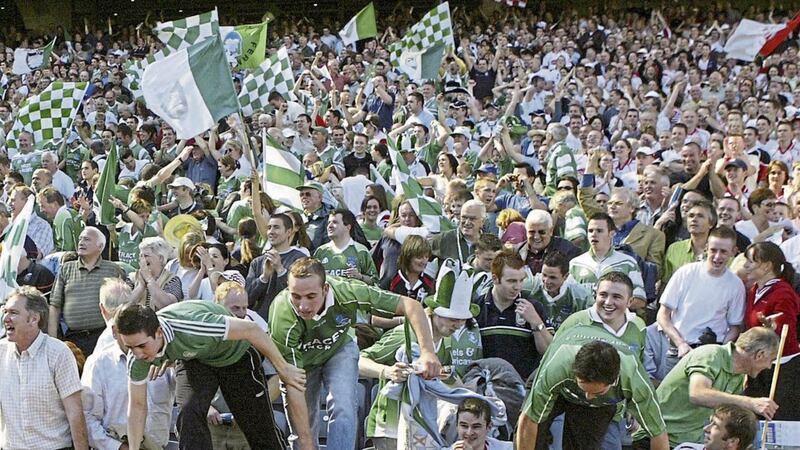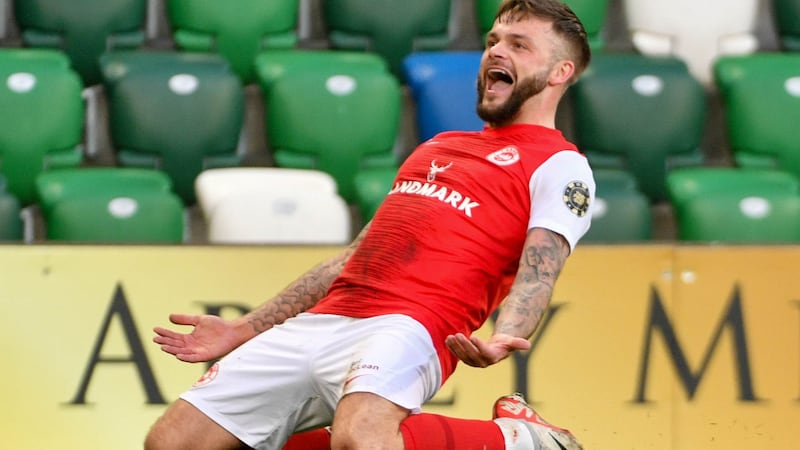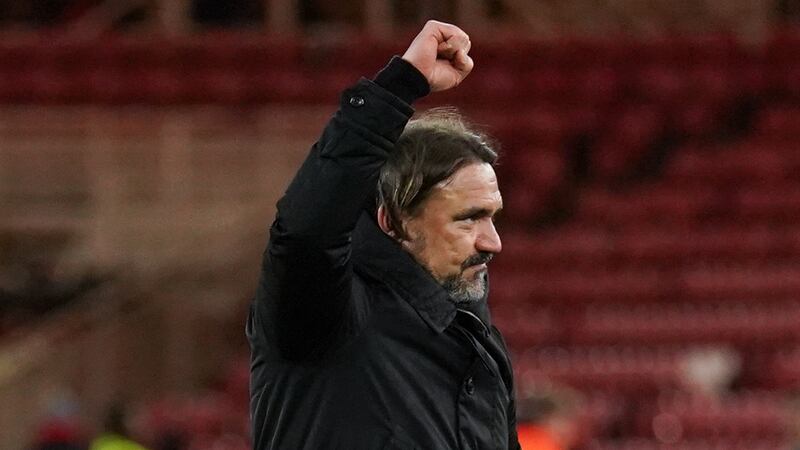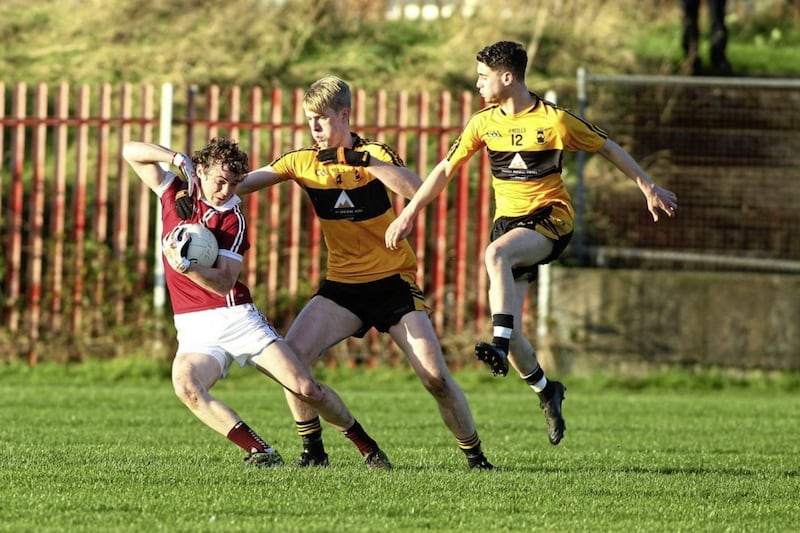IN 2009, the GAA moved to put an end to pitch invasions by supporters. The perceived wisdom at the time was that for Gaelic sports to be internationalised, they must mirror etiquette displayed by other international sports and pitch invasions were too primal for airing on a global stage.
Of course it was also at a time when health and safety had gone mad. I’d never heard of anyone being injured running onto a pitch to congratulate or commiserate their friends in all my early years, that is, until 2010.
When the final whistle blew on March 17 and Crossmaglen Rangers won their fifth
All-Ireland Club title, the customary pitch invasion began. The first person to enter the pitch was man-handled in a way befitting of a black card offence. As he fell to the floor, the squeals of pain could be heard over the roaring crowd. No-one else was prevented from entering the pitch on that day after that event.
We later found out he broke his leg in the collision, which was ironic given the stewards were in place to improve health and safety.
Of course, there are times when supporters entered the pitch for alternative reasons, the most memorable incident being when referee Martin Sludden was attacked at the end of the 2010 Leinster final.
To this day, the people of Louth believe they were wronged by Sludden and are slow to condemn the actions of the pitch invaders. Isolated incidents, no matter how unpleasant they may be, do not make for good laws.
The cynic in me suggests the primary reason why pitch invasions were eradicated was due to the high number of personal injury claims being processed.
If there is one thing which scares the GAA more than anything else it is insurance claims.
Since 2000, insurance claims have bobbled between €8-10 million although there is no way of knowing how much of this money was paid towards injuries attributable to pitch invasions.
The scenes of unbridled emotion witnessed as supporters rushed onto Parnell Park and Pearse Stadium at the weekend were reminiscent of the golden years of the 1970s when supporters would lift the great Paidí ó Sé onto their shoulders and carry him over to the stand to receive the cup, or in the 1960 final when the Down supporters were seated in rows at the edge of the pitch.
I remember similar scenes as a nine-year-old in Crossmaglen when Joe Kernan was lofted into the air and paraded as a hero after winning the McKillop Cup in 1986.
Those experiences remain etched into memory for life. The Roscommon supporters who entered that pitch won’t ever forget that moment.
Not once, but twice in the same game, they experienced the euphoria of winning.
It is at this point that referee Barry Cassidy deserves great credit for the way he remained composed and removed the supporters before continuing the game.
This was an act of great maturity and mental wherewithal which surely catapults him into top position to referee the All-Ireland final this year.
Another decent performance in the Super 8 series will surely secure this treasured role.
Many another referee might have panicked and blew his whistle prematurely or may have taken much longer to clear the pitch. Similarly, the Roscommon players and management deserve credit for the way in which Roscommon did not allow this break in play to disrupt their flow.
At the end of game, players often report not hearing the referee’s whistle but rather react to the actions of other players or supporters as they hear the final whistle.
The initial outpouring of emotions upon thinking you’ve been victorious is so overwhelming that it can be difficult to put them back into the box.
Euphoria can quickly alter into a negative emotion such as ‘flip, we haven’t won’.
A key reason why the top teams are so successful is that they are able to control their emotions to dictate how they will perform which is why a key member of every inter-county backroom team is the sports psychologist.
These guys are professionals who work with players to develop in-the-moment awareness and who use mindfulness-based interventions so players can deal with negative internal emotions
In short, it doesn’t matter what happens on the pitch, you remain focussed.
Soon everyone will be talking about the magic of Jim Lowther following this victory in the same breath as sports pyschologists like Enda McNulty or Caroline Currid.
Pitch invasions might be outlawed but they have their place. This particular pitch invasion might just be the one significant moment which deters Croke Park from abolishing the provincial Championships.
In the GAA’s eyes, Roscommon are in the Super 8 series, in the eyes of its players and supporters they are winners of a provincial competition. Nothing will remove that honour in 2019.
On Sunday, Cavan will aim to replicate the achievement of Roscommon.
They certainly are a team on a mission who’ve gained many admirers for their resilience and skills but if it comes down to a battle of minds, no one beats Donegal.








